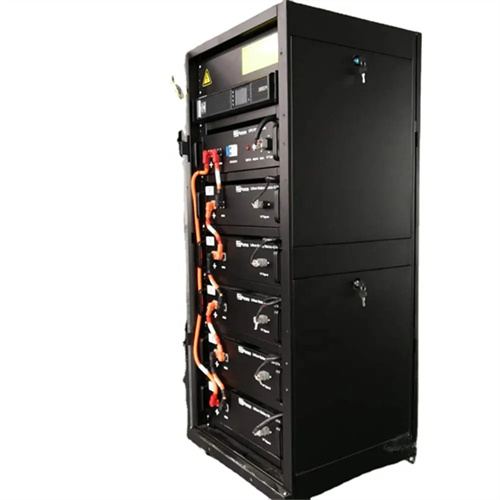What category does the photovoltaic inverter belong to

Solar inverter
OverviewClassificationMaximum power point trackingGrid tied solar invertersSolar pumping invertersThree-phase-inverterSolar micro-invertersMarket
A solar inverter or photovoltaic (PV) inverter is a type of power inverter which converts the variable direct current (DC) output of a photovoltaic solar panel into a utility frequency alternating current (AC) that can be fed into a commercial electrical grid or used by a local, off-grid electrical network. It is a critical balance of system (BOS)–component in a photovoltaic system, allowing the use of ordinar

Solar Integration: Inverters and Grid Services Basics
Types of Inverters. There are several types of inverters that might be installed as part of a solar system. In a large-scale utility plant or mid-scale community solar project, every solar panel might be attached to a single central inverter. String

Photovoltaic Cell Generations and Current Research Directions
The purpose of this paper is to discuss the different generations of photovoltaic cells and current research directions focusing on their development and manufacturing technologies. The

Classification of photovoltaic grid-connected inverters
Common classification of photovoltaic grid-connected inverters: As an important part of photovoltaic power generation, the inverter mainly converts the direct current generated by photovoltaic modules into alternating

Isolation in solar power converters: Understanding the IEC62109-1
6. Overvoltage category (OVC) – addresses the transient voltages. According to the IEC 62109-1 standard, equipment falls into one of these four categories: • Category I: Applies to equipment

Step-by-Step Guide: Connecting PV Panels to an
The use of photovoltaic (PV) panels, which convert sunlight into power, has seen exponential growth in recent years. An inverter is a crucial part of every solar power system because it transforms solar energy into usable

Solar cell | Definition, Working Principle, & Development | Britannica
While total photovoltaic energy production is minuscule, it is likely to increase as fossil fuel resources shrink. In fact, calculations based on the world''s projected energy

Inverter types and classification | AE 868: Commercial
Inverters based on PV system type. Considering the classification based on the mode of operation, inverters can be classified into three broad categories: Stand-alone inverters (supplies stable voltage and frequency to load) Grid-connected

Photovoltaic Inverters: What are They and How do
A photovoltaic inverter, also known as a solar inverter, is an essential component of a solar energy system. Its primary function is to convert the direct current (DC) generated by solar panels into alternating current (AC)

A Guide to Solar Inverters: How They Work & How to
What is a solar power inverter? How does it work? A solar inverter is really a converter, though the rules of physics say otherwise. A solar power inverter converts or inverts the direct current (DC) energy produced by a solar panel

Photovoltaic Inverters: What are They and How do
Yes, photovoltaic inverters are available in three main types: string inverters, microinverters, and power optimizers. String inverters connect multiple solar panels in series, while microinverters are installed with each

Related Contents
- What energy category do photovoltaic panels belong to
- What does 5gw photovoltaic inverter mean
- What glue to use for photovoltaic inverter
- What is a photovoltaic inverter collector
- What inverter is best for 60kw photovoltaic power generation
- What is the inverter in a photovoltaic plant
- What tests does the photovoltaic inverter pass
- What size is the right size for a photovoltaic inverter
- What is a photovoltaic off-grid inverter
- What to do if the photovoltaic inverter is locked
- What is a photovoltaic sliced hollow board
- What is the automatic dissolving agent for photovoltaic panels